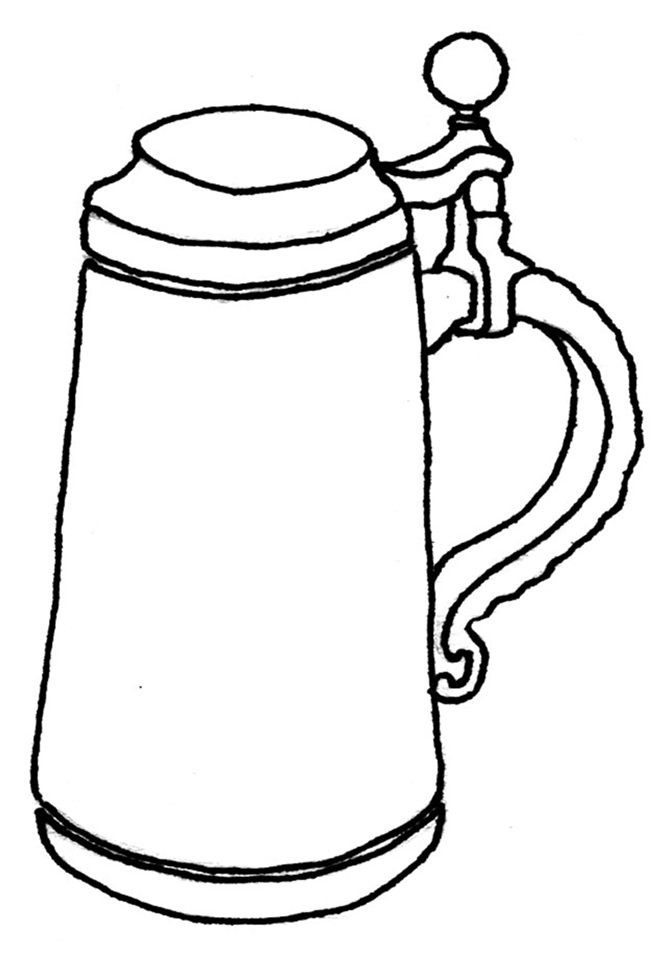Deutschland, Deutschland, über alles,
Über alles in der Welt…
(Germany, Germany, over all,
Above all in the world…)
—from Das Deutschlandlied, German national anthem, music by Franz Joseph Haydn, lyrics by August Heinrich Hoffman von Fallersleben (1841)
When I heard this stirring music, written by the great composer Haydn, played over and over as the German team marched through the World Cup, two thoughts repeated in my mind. One, the American team did pretty well, losing to the Germans by the same score as Argentina in the championship match (1-0).
The second was a memory from 1956, when I was a soldier stationed in Germany. One afternoon after we got off duty, two friends and I drove over the old bridge crossing the Main River up to a 13th-century castle, Fortress Marienberg, just outside Würzburg. We’d done this before, sitting at a table by the ancient walls, drinking beer, watching the sun set over the town’s lovely old turrets, domes and spires. But this time — we got off late, and didn’t have time to change — we were still wearing our uniforms. Below us a barge floated by, carrying a huge red sign: Trink Coca-Cola.
We were feeling good: young, healthy, enjoying an adventure in a foreign country. Out of sheer exuberance, showing off our little German and clinking our large beers, we stupidly began singing Deutschland, Deutschland, über alles… Before we got to the third line, we heard chairs scraping on the cobblestones. Across the courtyard, not far behind us, a group of husky drinkers — possibly the Würzburg soccer team — had stood up and were staring at us. We knew immediately we were in trouble: we had insulted them, our Army uniforms mocking symbols of their country’s crushing defeat. The crowded courtyard fell silent. Dropping uncounted German bills on the table, we stood up and headed with as much dignified speed as we could muster in the opposite direction of the young men, hoping there was an exit in front of us. We pushed open a heavy door, ran down some steps, and jumped in our car, a dented ’49 Opel abandoned by a departing sergeant. We drove, fast, back to the barracks, and changed into our civilian clothes. Then we drove out again to our favorite biergarten, “Der Fliegende Holländer,” where the German bartender liked us — we had our own mugs hanging on the wall — and talked about our near brush with death.
“They would have thrown us over the wall into the river,” Murray said. Callow young men exaggerate, but as I remember the incident, my hands get a little cold. He might have been right.
As you’d guess from my name, I’m part German. My grandfather, Harry Christian Meinke, immigrated through Ellis Island toward the end of the 19th century. He was alone, a young boy from Hannover, about the age of some of the children now trying to cross our own borders. His parents had died, and he was sent by cousins to live with related poor German immigrants, fishermen in Brooklyn, who lived in shacks along Sheepshead Bay. I doubt if they were overjoyed to see young Harry, but they took him in. In my earliest clear memories of Brooklyn, I’m in a creaky old rowboat with Grandpa, breathing the strong smell of fish mixed with his cigar, learning to pull in sheepshead, flounder, and the occasional scary eel.
These boyhood reflections, mingling with those of our American team (with its German coach), bring yet another image to mind: the sonnet engraved on the pedestal of the Statue of Liberty, greater than our or Germany’s boasting national anthems. For a century — until just a few years ago — its famous conclusion had spoken to the deep core of American hearts and values.
“Give me your tired, your poor,
Your huddled masses yearning to breathe free,
The wretched refuse of your teeming shore.
Send these, the homeless, tempest-tost to me,
I lift my lamp beside the golden door.”
—from “The New Colossus” by Emma Lazarus (1849-1887)


